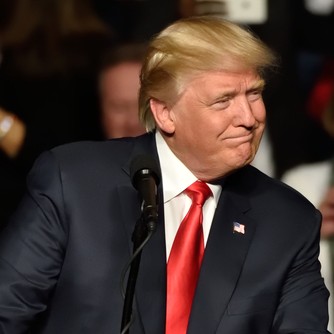Trump argues supremacy clause shields him from 'Apprentice' contestant's state suit while in office

President Donald Trump. Evan El-Amin / Shutterstock, Inc.
Lawyers for President Donald Trump plan to argue in a suit by a former The Apprentice contestant that the president is immune from a civil suit in state court while he is in office.
Trump’s lawyers at Kasowitz Benson Torres said in a legal filing in the New York state supreme court that the Constitution’s supremacy clause requires dismissal of the suit by former contestant Summer Zervos, report the Washington Post and the Hollywood Reporter.
Zervos sued Trump for alleged defamation when he denied her claims that he kissed her without her consent during a meeting at his New York office, and kissed and groped her—again without her consent—at a Los Angeles hotel where he had arranged to meet her for dinner.
Trump’s legal filing said the immunity issue was raised, but not decided, in the Paula Jones suit against President Bill Clinton for alleged sexual harassment when he was governor of Arkansas. Clinton later settled the case without admitting fault.
The Supreme Court’s 1997 decision (PDF) in Clinton v. Jones found that federal courts were not required to stay the private civil suit until Clinton’s term ended. The decision by Justice John Paul Stevens had noted that the president was relying heavily on the doctrine of separation of powers, and his arguments likely would differ if the litigation were pending in state court rather than in federal court.
According to the Post, one of the lawyers who successfully argued that Clinton was not immune from such lawsuits was George T. Conway III, who is married to Trump adviser Kellyanne Conway.



